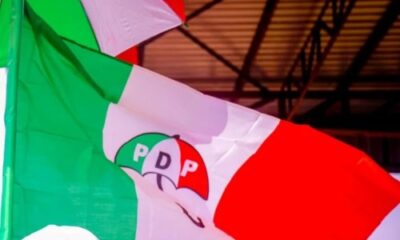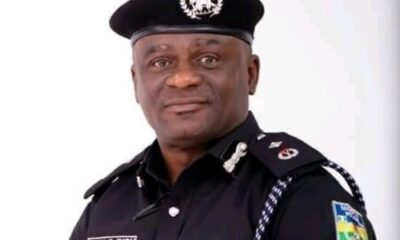
All we have of freedom, all we use or know –
This our fathers bought for us long and long ago.
-Rudyard Kipling
In the comity of states in Nigeria, Rivers, the colourful Treasure Base of the Nation, is primus inter pares. It was from her waters, 50 years ago, that the historic course of state creation, as a worthy replacement for the regional system -in place long before the attainment of political independence- was ferried upcountry: first to Dodan Barracks, the then seat of military power in Lagos, and then to Kaduna, the North’s political headquarters, on orders of then Head of State, Gen. Yakubu Gowon, for consensus.
Chief Harold Dappa-Biriye, Sage of the Niger Delta and patriarch of Nigerian minority rights activism, led the charge, essentially, as a logical continuation of the collective agitation for the protection and survival of minority nations, based, mainly, on ecological reasons, at the Lancaster constitutional conference of 1957 which birthed the Willink Commission Report the following year.
But 1967 was a different year – 10 years since Lancaster, and so much had changed. Independence, even if nascent, was well aware of its own presence at seven years of age plus, holding in its hands, two of Africa’s bloodiest coups, even to this day. The climate dictated its methods; new methods, indeed.
Widespread agitations bothering on the belongingness of geopolitical blocs – themselves products of colonialism’s revisionisms- and tone-deaf power-sharing incongruities became a national crisis that presaged a three-year civil war.
Nobody, as it were, thought outside the box.
But one man knew better. Chief Harold Dappa-Biriye, whose name hardly appears in any major text on history in Nigeria today, sought out audience with Gen. Yakubu Gowon, Head of State and Commander-in-Chief, with a map of the South already divided into six states!
He later recalled the events of those days: “So, when I was carving out the states of the country for the south, we carved out Lagos, the Western, the Midwest, Rivers, South- Eastern, the East-Central states. And so, if any person wanted to make any claim he was made to confine it to his own area. And of course when I brought forward the issue of states to Gowon, he said well Chief go to the north and if your friends agree with you come back I will create it immediately. So, at this time, I had proposed twelve states – six in the South and six in the north.”
Dappa-Biriye’s unwavering clear-sightedness on the agenda of a distinct Rivers Identity dates back to his days as a student at Kings College in Lagos. Graduating in 1941, he recalled: “So, when I returned from Kings College in 1941 December, I found out one important thing…we did not have a platform or bridge for collective action. I told my father and his age group that they should try and organise a front that could act as a platform for the Ijaws. So, my father’s age group formed what was called Ijaw Rivers Peoples League (IRPL)….and he was the President-General of the League. A man called Ebenezer Opuogulaya was the deputy president. He was from Okrika.”
These words capture, in vivid language, the process of conception which, after a gestation period of nearly three decades, culminated in the birthcry that was General Gowon’s Decree 14 of May the 27th, 1967.
Since that delivery, half a century ago, Rivers State has stood tall and peerless, not only for leading the way into Nigerian stateism but because, in every sense of it, it has justified, quite enviably to this day, the ideology that defined its creation.
Rivers State is, without fear of contradiction, Nigeria’s best object lesson in the stabilising power inherent in delineating geo-cultural identities as a mandatory minimum of justice, in guaranteeing a satisfying ventilation of divergences on the road to national unity.
Like Nigeria, but much better than it, there is no dominant indigenous language, no established ultra-domineering political superpower bloc, but boundless tides of opportunities and countless achievers who, true to being dolphins from the ocean, have doped out of the deep (apologies J.P. Clark) with shining successes at home and abroad.
The singular fortune of Rivers State’s emergence from the womb of its founding fathers’ agitation has been the defining joy for its people and their aspirations across generations.
Adokiye Amiesimaka, Agbani Darego-Danjuma, Obi Wali, Joseph Yobo, Elechi Amadi and Minere Amakiri are names which, taken as mere sampler, need no introduction in their fields anywhere in the world.
Its capital, Port Harcourt, is Nigeria’s Garden City, the first of its kind to pioneer a green ambition in Africa. Thanks to the legendary vision that gave birth to the original Port-Harcourt City master plan, unrivalled in the country. Thanks too, to His Majesty, King Alfred Papapreye Diete-Spiff: the Amanyanabo of Twon Brass and first governor of the state (1967-1975). Noticeably, the epilepsy that has afflicted its faithful execution, having been tended more by total outsiders (9 out of 16 governors) than by its own sons and daughters, appears to be its share of the ailments that have plagued Nigeria itself.
Today, it is to the example of Rivers State that all other states that have become expressions of minority nationalism owe their inspiration, with its daughter state, Bayelsa, as exemplum.
As capital of the Niger Delta, Port Harcourt’s multicultural feel has afforded a point of convergence to her immediate and distant neighbours with its allure of an aquatic paradise and cosmopolitan finesse, bar, of course, what is unattained on account of decades-long environmental injustice rising from oil wealth distribution politics.
Strikingly, having started out at 24, Queens Drive, Ikoyi, in the then Federal Capital city of Lagos owing to the tense heat of the civil war back home, the government, under the young but visionary leadership of 25-year-old Naval Lieutenant Commander Alfred Diete-Spiff as pioneer military administrator, relocated to Port Harcourt on September the1st, 1968.
The journey has only come so far as it has, with so much more on the plate, if we seek to make the next 50 years even better. I will suggest that security as well as education be brought on the front burner of core policy initiatives, the same manner in which we pioneered Nigeria’s first university of science and technology as well as the numerous scholarships given to deserving sons and daughters over the decades.
Some of our founding heroes –seni-apu Harold Dappa-Biriye, Ebenezer Opuogulaya, Melford Okilo, Godfrey Kio Jaja Amachree, Emanuel Aguma, the Graham-Douglases, P.G. Warmate, Thomanuel, the Revd E.T Dimiari, Kenule Saro-Wiwa and His Majesty Francis Alagoa Mingi X of Nembe may not, in the final analysis, capture every monument in the pantheon of delta warriors whose valour reshaped the course of history for us but they do, in every sense, convey the justice and honour due to an era.
Hence, those of us who now tread in their wake, the path they have so illustriously bequeathed to us, carry the peculiar burden of braving the tides of the challenges imposed by these times. We must sail without fail –and for those coming- to obtain more than was handed us by our forebears.

 BIG STORY3 days ago
BIG STORY3 days ago
 BIG STORY5 days ago
BIG STORY5 days ago
 BIG STORY3 days ago
BIG STORY3 days ago
 BIG STORY5 days ago
BIG STORY5 days ago
 BIG STORY20 hours ago
BIG STORY20 hours ago
 BIG STORY4 days ago
BIG STORY4 days ago
 BIG STORY2 days ago
BIG STORY2 days ago
 BIG STORY3 days ago
BIG STORY3 days ago





















